Healthy Body Herald #2 – Healthy Small Intestine, Does Melatonin work, COVID, Aspartame and More

– Karen Mercereau, RN, iRNPA – Patient Advocate
 What a healthy small intestine can create to keep you extra healthy
What a healthy small intestine can create to keep you extra healthy
We all know how the small intestine (with a healthy microbiome) synthesizes more than 90% of the serotonin (very important neurotransmitter) in our bodies, but did you know how many other vitamins, etc., are produced there? Thiamine, folate, biotin, riboflavin, and. another B vitamin are in a healthy diet, but they are also synthesized by gut bacteria. Likewise, it has been estimated that up to half of the daily Vitamin K requirement is provided by gut bacteria.
So, how healthy is your own intestinal Microbiome? If you eat a great deal of fast, processed food, or are on several medications, your microbiome may need some help. You can order a probiotic on Amazon or Walmart. Please just make certain that there are many types of healthy bacterial in it – preferably more than 25 or 35 billion per serving and inclusive of many strains.
Here is some interesting information from the Mayo Clinic on probiotics: ‘Type “probiotics” into Google and you’ll find over 198,000,000 search results and an infinite scroll of “probiotic” products promising to “fix”, “rebalance”, “restore”, or “reset”. And though the science of probiotics is one of the most exciting and rapidly growing areas of research, most “probiotics” and probiotic products (especially in the US) are not grounded in science at all. So, in addition to navigating the already challenging “biotic” landscape (prebiotics, probiotics, synbiotics, postbiotics), you are expected to discern those touting “science-backed” from actual science.” The one that they recommend – science based – is called DS-01. That can be purchased online.
Another good one is from a company called Jarrow and they make ones that contain 25-50 billion good bacteria of many strains per serving. You can find their products on Amazon, Vitacost, or Walmart.
 Does Melatonin actually work to go to sleep? Here are some interesting facts.
Does Melatonin actually work to go to sleep? Here are some interesting facts.
More research is being done on Melatonin. If you or one of your family is using melatonin to help going to sleep, I think you will find the following article very helpful.
We just tested 20 melatonin supplements. See what we found, which are our Top Picks, and learn:
• The best way to take melatonin for a good night’s sleep
• Side effects and interactions with melatonin
Full Article: Melatonin Supplements Review.
How effective is the new COVID vaccine?
Have you been wondering about whether you should take the latest COVID vaccination? There has been a good deal of information – and misinformation – about the newest Covid vaccine.
- Updated COVID-19 vaccines were 54% effective against symptomatic SARS-CoV-2 infection.
- The vaccines protect against the currently dominant JN.1 viral lineage, but protection wanes over time.
- ttps://www.healio.com/news/infectious-disease/20240201/updated-covid19-vaccines-effective-against-variants-new-data-show
Did you know that there is a medication that can help you to heal from COVID?
Have you heard about the medication called Paxlovid? “Paxlovid, the pill that has become the go-to treatment for COVID-19 treatment, was granted full approval in May by the Food and Drug Administration (FDA) for the treatment of mild-to-moderate COVID-19 in adults at high risk for severe disease, including hospitalization and death. Jan 10, 2024
13 Things To Know About Paxlovid, the Latest COVID-19 Pill
The little blue artificial sweetener called Aspartame is getting some very bad press – research is calling it a possible cancer-causing substance.
Artificial sweeteners are in the news again – especially Aspartame – the little blue packet. Let’s take a closer look:
Assessments of the health impacts of the non-sugar sweetener aspartame are released today by the International Agency for Research on Cancer (IARC) and the World Health Organization (WHO) and the Food and Agriculture Organization (FAO) Joint Expert Committee on Food Additives (JECFA). Citing “limited evidence” for carcinogenicity in humans, IARC classified aspartame as possibly carcinogenic to humans (IARC Group 2B)
 Our mouths have their own microbiome! It is second only to your small intestine microbiome and is critical for our health.
Our mouths have their own microbiome! It is second only to your small intestine microbiome and is critical for our health.
Well, here is a very interesting fact published by the National Institute of Health: The oral cavity has the second largest and diverse microbiota after the gut harboring over 700 species of bacteria. It nurtures numerous microorganisms which include bacteria, fungi, viruses and protozoa. The mouth with its various niches is an exceptionally complex habitat where microbes colonize the hard surfaces of the teeth and the soft tissues of the oral mucosa. In addition to being the initiation point of digestion, the oral microbiome is crucial in maintaining oral as well as systemic health. Because of the ease of sample collection, it has become the most well-studied microbiome till date.
Who knew? What can be done to keep our oral microbiome healthy? Well, to start with: are you brushing twice a day and flossing once? If flossing is difficult for you, WaterPik makes an excellent answer to this issue: the Waterpik Water Flosser. Easy to use and an excellent way to remove all the food (and sugar) particles from between your teeth.
WaterPik is not the only option though. Some other choices are Lumivyx, Oral B Aquacare, and Burst Water Flosser.
 What can fresh fruits actually do for our health? Let’s look at apples and kiwi.
What can fresh fruits actually do for our health? Let’s look at apples and kiwi.
Fresh fruits can give your body so many nutrients that you may not want to take as many supplements. Let’s look at kiwifruit for example:
Kiwis are rich in vitamin C, copper, and vitamin K and contain smaller portions of many other important nutrients. Their impressive nutrition profile supports many avenues of health, including digestion, weight management, and blood sugar control. They also support heart and eye health and a healthy immune system.
Kiwis are generally considered safe, except for those with a known allergy.
You know the old saying “An apple a day keeps the doctor away”? Well, that may be true. Here is what an organic apple a day can do for you: Why organic? Because they contain an average of 4.4 pesticide residues, including some at high concentrations. Also, with organic you can safely eat the skins to get the benefit of all the fiber there.
Apples are considered nutrient-dense fruits, meaning they provide a lot of nutrients per serving. One medium 7-ounce (oz) or 200 grams (g) apple offers the following nutrients:
- Calories: 104
- Carbs: 28 g
- Fiber: 5 g
- Vitamin C: 10% of the Daily Value (DV)
- Copper: 6% of the DV
- Potassium: 5% of the DV
- Vitamin K: 4% of the DV
The same serving also provides 2–5%Trusted Source of the Daily Requirement for vitamins E, B1, and B6.
Apples are also a rich source of polyphenols, an important group of antioxidants. While nutrition labels don’t list these plant compounds, they’re likely a source for many of apples’ health benefits. To get the most out of apples, leave the skin on, as it contains half of the fiber and most of the polyphenols.
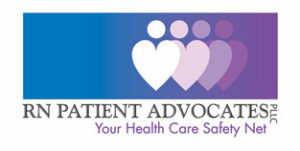
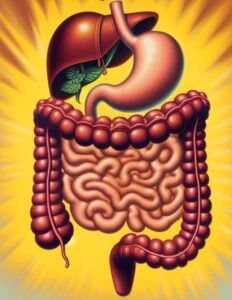 What a healthy small intestine can create to keep you extra healthy
What a healthy small intestine can create to keep you extra healthy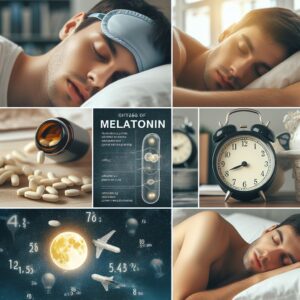 Does Melatonin actually work to go to sleep? Here are some interesting facts.
Does Melatonin actually work to go to sleep? Here are some interesting facts. Our mouths have their own microbiome! It is second only to your small intestine microbiome and is critical for our health.
Our mouths have their own microbiome! It is second only to your small intestine microbiome and is critical for our health.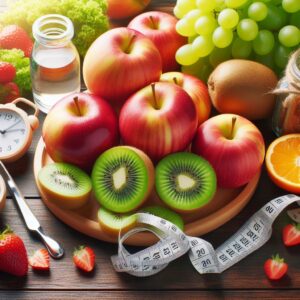 What can fresh fruits actually do for our health? Let’s look at apples and kiwi.
What can fresh fruits actually do for our health? Let’s look at apples and kiwi.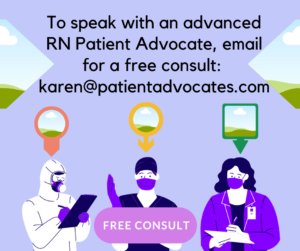

Recent Comments